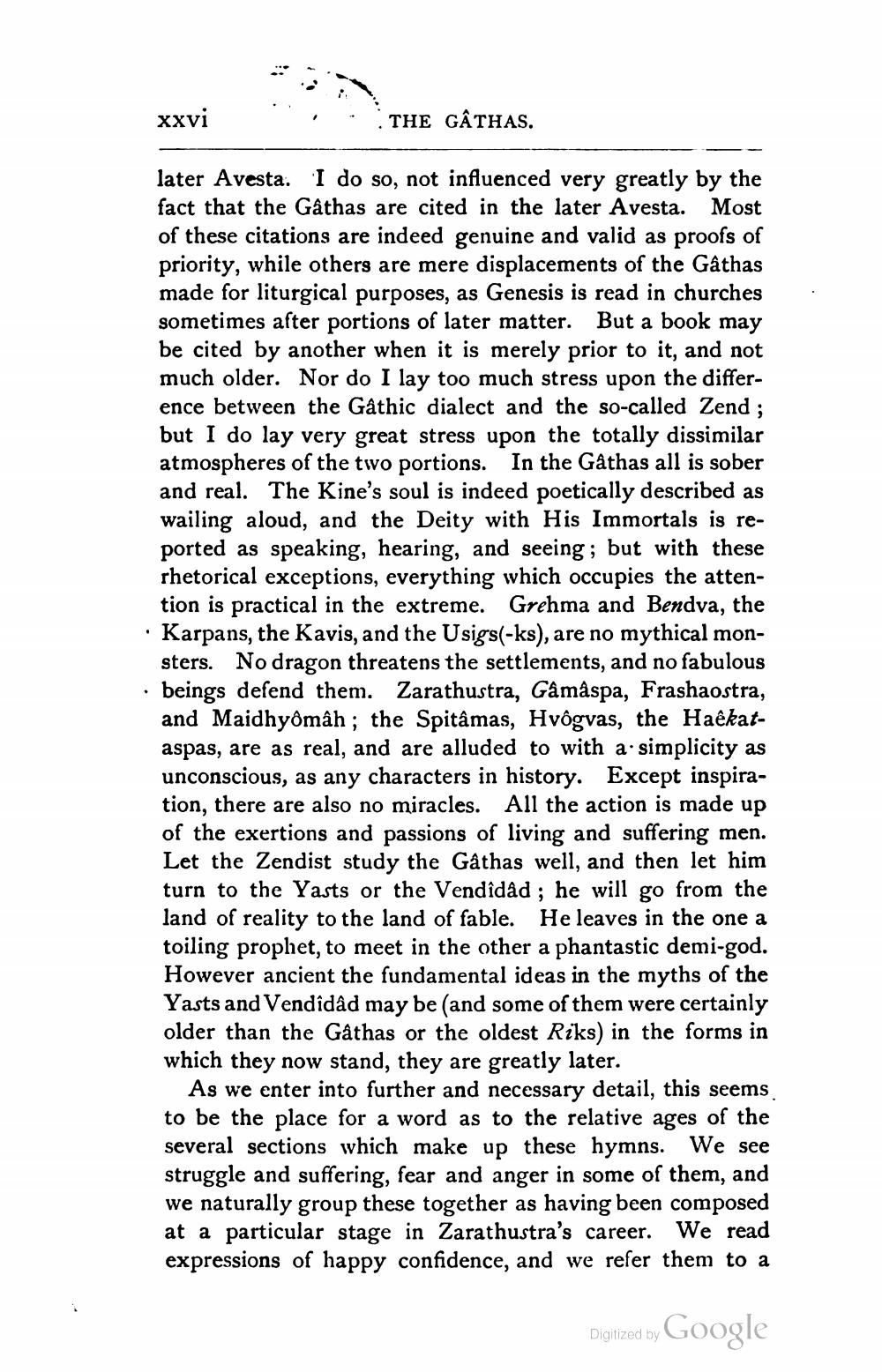________________
xxvi
.:THE GÂTHAS.
later Avesta. I do so, not influenced very greatly by the fact that the Gathas are cited in the later Avesta. Most of these citations are indeed genuine and valid as proofs of priority, while others are mere displacements of the Gathas made for liturgical purposes, as Genesis is read in churches sometimes after portions of later matter. But a book may be cited by another when it is merely prior to it, and not much older. Nor do I lay too much stress upon the difference between the Gathic dialect and the so-called Zend; but I do lay very great stress upon the totally dissimilar atmospheres of the two portions. In the Gåthas all is sober and real. The Kine's soul is indeed poetically described as wailing aloud, and the Deity with His Immortals is reported as speaking, hearing, and seeing ; but with these rhetorical exceptions, everything which occupies the atten
tion is practical in the extreme. Grehma and Bendva, the · Karpans, the Kavis, and the Usigs(-ks), are no mythical mon
sters. No dragon threatens the settlements, and no fabulous · beings defend them. Zarathustra, Gamaspa, Frashaostra,
and Maidhyðmâh; the Spitamas, Hvôgvas, the Haêkataspas, are as real, and are alluded to with a simplicity as unconscious, as any characters in history. Except inspiration, there are also no miracles. All the action is made up of the exertions and passions of living and suffering men. Let the Zendist study the Gathas well, and then let him turn to the Yasts or the Vendîdad; he will go from the land of reality to the land of fable. He leaves in the one a toiling prophet, to meet in the other a phantastic demi-god. However ancient the fundamental ideas in the myths of the Yasts and Vendidâd may be (and some of them were certainly older than the Gathas or the oldest Riks) in the forms in which they now stand, they are greatly later.
As we enter into further and necessary detail, this seems to be the place for a word as to the relative ages of the several sections which make up these hymns. We see struggle and suffering, fear and anger in some of them, and we naturally group these together as having been composed at a particular stage in Zarathustra's career. We read expressions of happy confidence, and we refer them to a
Digitized by
Digitized by Google




